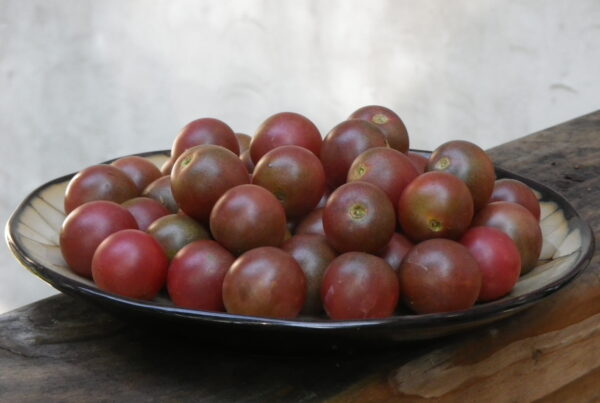Farm Bill Updates
Urge Congress to protect Organic Certification Cost Share
With the election close at hand, the Farm Bill remains “on hold.” If this changes, or if grassroots action is needed to ensure that the current (2018) Farm Bill is appropriately extended to ensure continuation of USDA programs until the next Farm Bill is completed next year, we will let you know. Watch for a special notice if things change before the November e-newsletter comes out.
The National Sustainable Agriculture Coalition (NSAC) has posted several blog articles analyzing different aspects of the Farm Bill and our advocacy goals. The most recent blog reviews credit provisions in Senate and House proposals. Earlier blogs cover Farm Bill provisions to enhance access and affordability in local food systems and provide robust funding for sustainable and organic agricultural research.
Take Action:
Whether through expediting the new Farm Bill or through an Extension of the current Farm Bill, Congress can – and must – protect key programs such as the National Organic Certification Cost Share Program (OCCSP). Call your Representative today to urge them to do what they can to ensure that this and other vital USDA programs are sustained through a new Farm Bill or an extension.
I am Still Seeking Your Input
What are your Priorities for the Farm Bill and USDA Programs?
Hello all! I would like to learn more about VABF member needs and priorities when it comes to federal farm policy and USDA programs – conservation, research, rural development, safety net, and other. Please contact me if you would like to set up a phone date (or in person visit if you are within 50 miles of Floyd ) to talk one-on-one about your priorities – Mark Schonbeck, 540-835-7664, schonbeckmark@gmail.com.
Also, if you are interested in taking a more active role in policy advocacy for VABF, please let me know! Several heads are better than one when it comes to this work.
Organic Farmers Speak Out on Immigration
One last thing we can do to help shift the narrative
As noted in recent e-newsletters, Elizabeth Henderson wrote this eloquent letter, signed by 100+ farmers, to Congress regarding the vital role of immigrant farmworkers in keeping us all fed – including those of us who choose organic at the super market. In addition, she encouraged others to use her opinion editorial as a template to write their own.
As the election approaches, there is one other thing that social media savvy folks (of which I am not one) might do to help this perspective on immigration to “go viral.” Send out messages such as “immigrants keep us fed” or “immigrants do the hard, dangerous work in fields and slaughterhouses to put food on our tables.”
Current Funding Opportunities for Organic and Sustainable Agriculture
Organic Certification Cost Share Program (OCCSP)
Application deadline is Oct 31, 2024 – apply today!
If you are a USDA certified organic farmer or handler and you have incurred expenses related to organic certification during Fiscal Year 2024 (October 1, 2023 through September 30, 2024), you are eligible for a reimbursement of 75% of your certification costs up to $750 for each certification “scope,” including crops, livestock, wild crops, and processing/handling. You can receive reimbursement for application fees, inspection costs including inspector travel expenses, costs related to equivalency agreements and sales assessments, and postage. Contact the Farm Services Agency (FSA) through your local USDA Service Center or the Virginia Department of Agriculture and Consumer Services (VDACS) to access this benefit.
Partnership for Climate Smart Commodities is Seeking Participants
30 projects reaching out to Virginia farmers
The Partnership for Climate Smart Commodities (PCSC), which has funded 30 projects that include Virginia, are recruiting farmer participants. PCSC projects offer technical and financial assistance to implement climate-friendly, soil-enhancing practices, develop practical and reliable methods to monitor and quantify net greenhouse gas (GHG) mitigation and carbon sequestration, and open new market opportunities for farmers to market their products as climate smart. VABF is an active participant in a Rodale Institute led project on climate smart vegetable production systems including both organic and non-organic. For more information on this project, contact Brent Wills at programs@vabf.org.
James River Buffer Program
Designs and installs riparian forest buffer at no cost to you
If your farm is located within the James River watershed and you would like to plant a forested buffer to protect water quality, provide wildlife habitat, and improve farm biodiversity, check out the James River Buffer Program. The James River Association, the Virginia Department of Forestry, and the Chesapeake Bay Foundation are working with farmers and landowners across the middle and upper James River watershed to restore or create forest buffers that improve the quality of local waterways. The program works with you to select tree species, plants the buffer, and provides maintenance for the first three years at no cost to you. Plantings can include income generating species such as sugar maple for syrup production.
Perennial plantings will play a vital role in addressing the climate crisis by enhancing resilience, sequestering carbon, and intercepting nutrients.
Other News from National Sustainable Agriculture Coalition (NSAC)
2022 Agricultural Census
The USDA recently published the results of the 2022 agricultural census. On the one hand it shows an ongoing upward trend in the use of cover cropping, grazing management, reduced tillage, and other conservation practices, though cover crops are still planted on only a fraction of cropland acres. On the other hand, the trend toward farm consolidation – fewer, larger farms – continues. See this NSAC blog post on the 2022 ag census.






